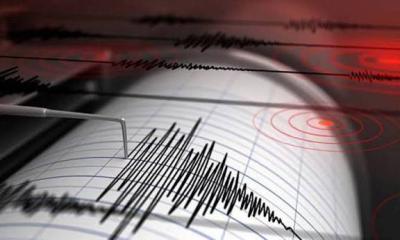Leading global climate scientist from Bangladesh, Professor Saleemul Huq, passed away on October 29 at a time when the world is preparing for the forthcoming UN climate summit in Dubai.
I’m aware of the fact that this article is already late by weeks. However, keeping silent about him and his contribution to the climate movement will be no worse than joining hands with those responsible for the global climate chaos.
Plus, he was easy to reach and understand by journalists, donor agencies and embassies – and, in fact, this unique quality propelled me to pen down this write-up.
What is even better to know is he was equally popular among the youth.
Now, after his demise, the question among young climate communicators arises: how will the negotiation for materializing the loss and damage fund be?
When he commented on any issue in a report, it added some next-level value to that.
So, as a journalist, I had to contact him for the betterment of my articles.
It was not far ago, in 2019 just before the COP25, I approached him for an interview. I used to work as a staff reporter with the Dhaka Tribune at that time. He said all right, showing no sign of denial. Also, I phoned him a few times for comment in my report though I was not known to him. He gave me the schedule.

I knew how busy he was for the COP25 negotiations. He was seriously thinking about the loss and damage fund and the upcoming COP. To establish a separate fund to compensate the loss and damage received by the poor and most vulnerable communities, was always in his mind.
He managed some time beside a conference room organized by ICCCAD. We talked for around 30 minutes there.
In that interview published in Dhaka Tribune, Prof Saleemul Huq showed me the worst picture of climate finance. This is another realization about climate finance destination.
The questions were not structured, but I felt no problem continuing to question, thus, getting a fine piece for my newspaper. It means he directed the interview.
According to him, around 20 percent of finance from the climate funds go to adaptation. Of these 20 percent, only 2 percent reaches the most vulnerable communities across the globe.
However, the countries are getting money but the most vulnerable people who are needy and poor, are not getting the money. He indicated the governance.
I realized how the finance flows, he was like a mirror that reflects the real scenario of global climate finance and its destination. In this finance mechanism, the first thing that comes to mind is how the poor and needy people can survive and cope with the changing patterns of weather, livelihood, housing and society.
“How they cope up with the changing situation” is a warehouse of story ideas on adaptation for a journalist.
The merit of the stories of adaptation, resilience building, locally led adaptation, and nature-based solutions is high in local and global media. Similarly, identifying the loss and damage, and its impact on human lives and nature is also a demandable topic of reporting on climate change.
Dr Huq popularized the terms resilience, locally led adaptation, nature-based solution, and of course, loss and damage.
“Each time I phoned him, I have learned something new,” Mohammad Al-Masum Molla, chief reporter of The Daily Star told me recently.
“How the complex scientific terms can be explained by some simple words, and the words are easily understandable for the greater audience or reader. Professor Saleemul Huq is the master in this case.
“Based on his experience in climate negotiations, Professor Huq was excellent in setting an agendaand used to pick the best topic in the most suitable time. And the newspaper gets the inspiration of making reports on those issues,” he said.
“He was responsive all the time and his way of conversation was warm and friendly.” He also mentioned that there is a lack of resourceful people who can comment in the media like ProfHuq.
All the journalists I know in Bangladesh working on environmental and climate change issues will feel the shortage of quality comments in adaptation, loss and damage and global climate talk-relatednews stories.
Chittagong Bureau Chief of The Business Standard, Shamsuddin Illius, a well-known journalist, told the media that he often sends his draft copy with Professor Huq, especially in those reports where scientific issues are there.
Around 22 journalists wanted to interview Prof Huq in COP27, at Sharm el- Sheikh, all of them were media fellows of Earth Journalism Network (EJN) covering the conference.
EJN Executive James Fahn wanted to arrange this interview session while the Third Pole Director Joydeep Gupta approached Dr Huq. He gave consent. I saw that all of the journalists from developed countries were excited, especially James.
However, Prof Huq canceled the appointment due to another engagement and I was thinking how priceless he was and how he could refuse around these many journalists from parts of the world. I was thinking in this way because he was reachable to me for comments almost every time. But he gave around an hour in the cubicles in the media room on the next day. And we interviewed him keeping all other engagements aside.
His engagement with the young people was at a different level. No other climate experts can reach this relationship. It was huge.
Sohanur Rahman, executive coordinator YouthNetfor Climate Justice, said the young people surrounding him was like bees surrounding honey.
“Yes, I have seen Prof Huq was available in a resilience hub where there were always a number of youth activists and journalists all the time.
“When developed countries including Canada were not ready to receive the establishment of a loss and damage fund, Dr Huq said “I am hopeful”.
At the same time, hundreds of youth activists organized a colorful rally. Their voices were so bold and clear.
Youth was the only group who raised the voice that reached every corner of the huge conference center. At last, the fund was established. Now, I can realize why Prof Huq was hopeful though all were starting to lose hope.
I have seen Prof Huq surrounded by the young activists. I often discovered him in a herd of young people from Africa, Europe, North America, Asia and Arabian nations in COP.
I wonder how wide engagement was maintained by prof Huq, but was available to all. He did refuse none.
Nayoka Martinez Bäckström, first secretary,Environment and Climate Change and Deputy Head, the Development Cooperation Section of the Embassy of Sweden, said in an email, “Dr Saleemul Huq shared our concerns that young people be well-equipped with the right knowledge, capacities and tools to be effective in their climate leadership and mobilisation.
“Our cooperation with ICCCAD is thus designed with this objective in mind, specifically to build capacities of young women who were interested to be involved in scientific training, research and leadership in the climate sphere.”
The relationship with the foreign missions, donor agencies and diplomats was also in a different high. They used to search, contact and take an insight for their mission and work with the climate vulnerable Bangladeshi people.
“I moved to Bangladesh in August 2021 as a diplomat, to be responsible for managing the environment and climate change development cooperation portfolio of the Embassy of Sweden in Dhaka. Dr Saleemul Huq was among the first people I contacted in order to get a good overview and understanding of Bangladesh’s climate priorities, policy and decision-making structures, Nayoka said.
“Dr. Huq could explain complexities without need for written or visual illustrations. One could picture what he was saying just by his choice of words and the way he described processes so clearly and concisely.
“He was such an eloquent communicator of science and research. And he was a visionary, leading the work on loss and damage and navigating seamlessly between the political, technical, financial, social and justice dimensions of such a contentious issue. He was our go-to expert particularly in the area of climate finance, including how the financial architecture could serve the issue of loss and damage compensation.
Nayoka termed him a great man, a creative mind, a brilliant researcher and champion of the global climate movement. She said, “Dr. Huq advised our cooperation every single step of the way until his untimely death.”
After hearing the death of Dr Huq, Marie Masdupuy, Ambassador of France in Bangladesh,tweeted, “He was not only an eminent personality of Bangladesh, but a worldwide authority constantly working to wake up our conscience and advising us to study and base advocacy on science, Rest in peace., professor.”
After the recent visit of France President Emmanuel Macron, we know that France is going to be an important partner in adaptation. And the ambassador did not make any delay to express her condolences to prof Huq.
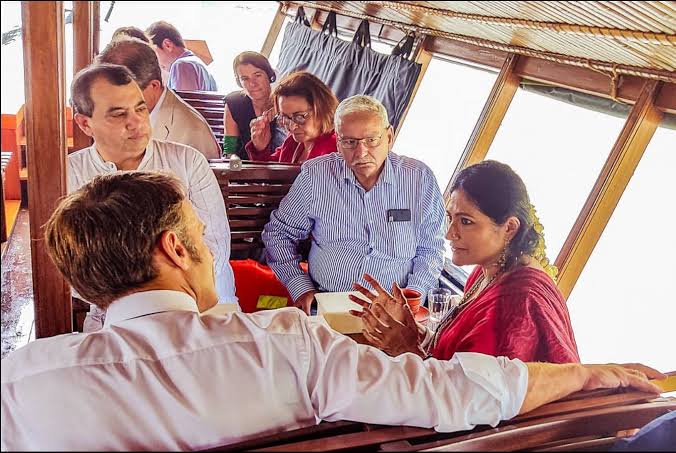
If anyone asks me, I will say the establishment of a loss and damage fund is his most important work of his life. But he popularized other terms “locally led adaptation” “Nature-based solution” and resilience. Now these are the best ways to cope up with the vulnerable nations across the world.
Resilience is another such phenomenon in climate talk popularized by the various efforts of professor Huq.
Journalists who will participate in COP28 will keep their eyes on the negotiation of the operationalization of the fund.
I am wrapping up the article here by posting a statement given by Dr Saleemul Huq in Global Climate Strike, “I am a great supporter of action to combat the injustice of climate change that is caused by the rich (Nations) and suffered by the poor is cannot be allowed to continue and we have to change it as quickly as possible.”




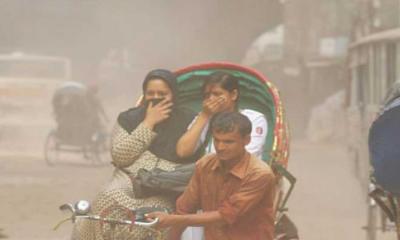
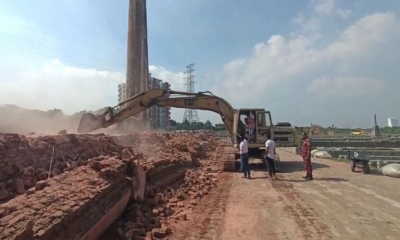
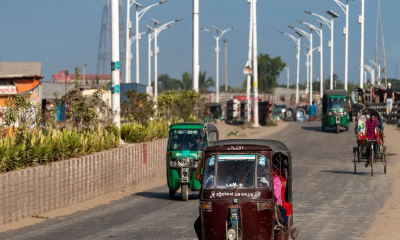
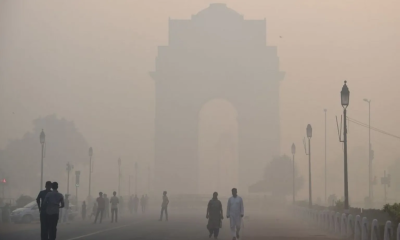
-20251226051932.jpeg)
-20251222051606.jpeg)



-20260217073221.webp)


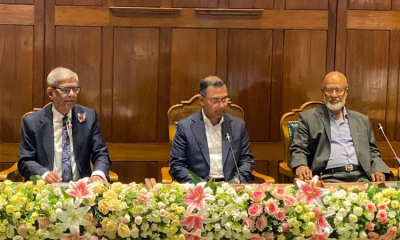

-20260216115008.webp)

















